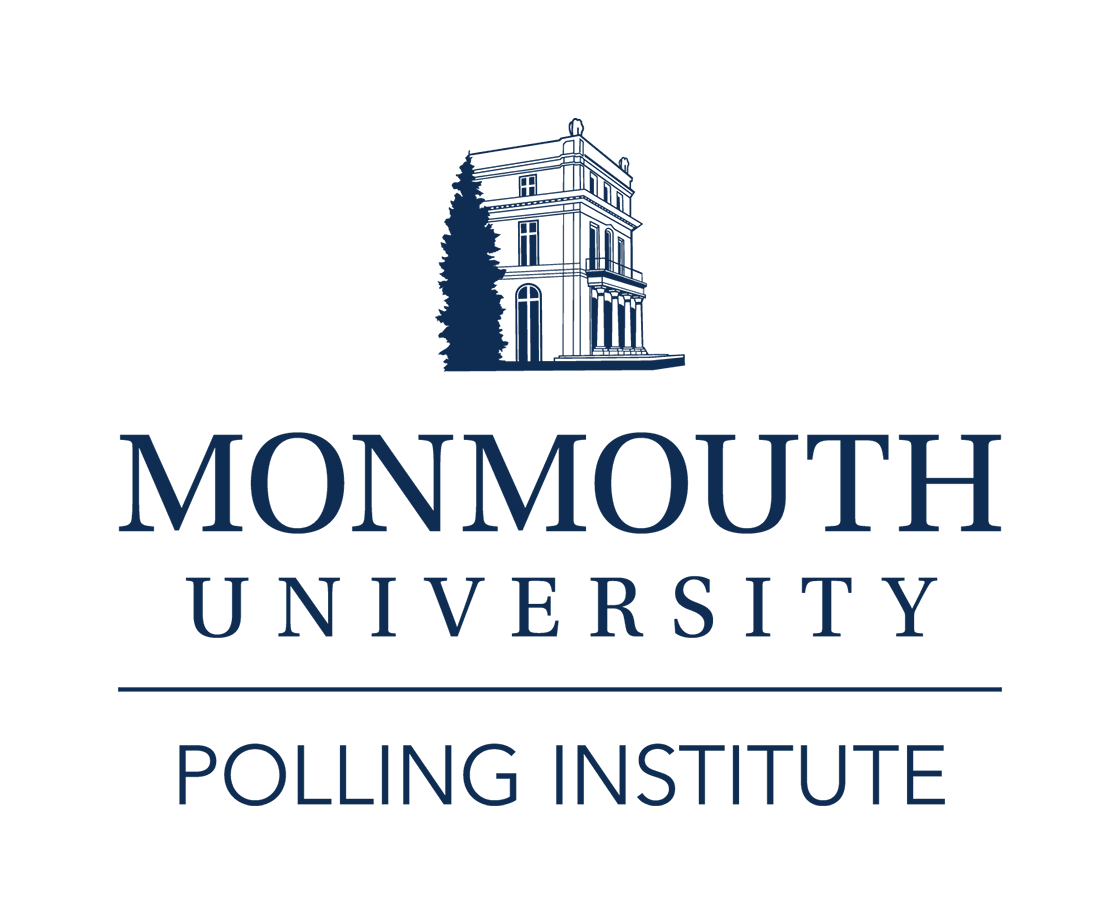The Monmouth University Poll finds incumbent Senator Kay Hagan leading her challenger Thom Tillis by a narrow two points among likely voters in North Carolina. In what may end up as the most expensive U.S. Senate race in history, in part due to outside expenditures on attack ads, Hagan is seen as the more trusted candidate. The poll also finds a smaller than normal gender gap in the race which tips the scales slightly in the incumbent’s favor.
In the upcoming election, 48% of likely North Carolina voters say they will vote for Democratic incumbent Kay Hagan and 46% will vote for Republican nominee Thom Tillis. Another 1% intend to vote for Libertarian Sean Haugh and 4% remain undecided. Hagan’s lead is within the poll’s margin of sampling error.
Both major party candidates have strong support among their partisan bases. Specifically, 89% of self-identified Democrats support Hagan and 89% of Republicans support Tillis. Independent voters actually support Tillis (50%) over Hagan (41%). Tillis also has a 55% to 40% edge among white non-Hispanic voters, but Hagan holds a much larger 78% to 16% advantage among voters of other races and Latino backgrounds.
The Monmouth University Poll finds a gender gap in this race that is not as large as in many other senate races across the country. Male voters in North Carolina tilt slightly Republican in their U.S. Senate vote – 49% support Tillis and 45% support Hagan. Women voters are more likely to back Hagan over Tillis by a 50% to 44% margin.
“In many ways, this race has been a battle for the women’s vote. Hagan has attacked Tillis on pay equality while Tillis has attacked Hagan for being soft on terrorism. The gender gap appears to be the tipping point in North Carolina, but it is not as wide as other Senate races we polled this year,” said Patrick Murray, director of the independent Monmouth University Polling Institute in West Long Branch, New Jersey.
The poll also finds that voters prefer Hagan on a key personal quality. When asked which candidate is honest and trustworthy, 35% say Hagan and 24% say Tillis, while 6% say both and 30% say this describes neither candidate.
North Carolina voters are divided on which party they would like to see in control of the U.S. Senate – 41% prefer the Democrats, 38% prefer the Republicans, and 18% say it makes no difference. These voters hold a negative opinion of Barack Obama, with just 41% who approve of the job he is doing as president and 54% who disapprove.
The Monmouth University Poll was conducted by telephone from October 23 to 26, 2014 with 432 North Carolina voters likely to vote in the November general election. This sample has a margin of error of ± 4.7 percent. The poll was conducted by the Monmouth University Polling Institute.
DATA TABLES
The questions referred to in this release are as follows:
(* Some columns may not add to 100% due to rounding.)
1. If the election for U.S. Senate was today, would you vote for Thom Tillis, the Republican, Kay Hagan, the Democrat, or Sean Haugh, the Libertarian? [TILLIS & HAGAN WERE ROTATED] [IF UNDECIDED: If you had to vote for one of the following at this moment, do you lean more toward Thom Tillis or more toward Kay Hagan?]
| (with leaners) |
LIKELY |
PARTY ID | GENDER |
AGE | ||||
|
Dem | Ind | Rep | Male | Female | 18-49 |
50+ | ||
| Thom Tillis | 46% | 8% | 50% | 89% | 49% | 44% | 42% | 48% |
| Kay Hagan | 48% | 89% | 41% | 5% | 45% | 50% | 51% | 47% |
| Sean Haugh | 1% | 0% | 2% | 2% | 2% | 1% | 3% | 1% |
| Undecided | 4% | 3% | 6% | 3% | 4% | 5% | 4% | 4% |
2. Do you approve or disapprove of the job Barack Obama is doing as president?
|
LIKELY |
PARTY ID | GENDER | AGE |
SENATE VOTE CHOICE | |||||||
|
Dem | Ind | Rep | Male | Female | 18-49 | 50+ | Tillis | Hagan |
Undecided | ||
| Approve | 41% | 78% | 33% | 3% | 39% | 42% | 42% | 41% | 2% | 81% | 30% |
| Disapprove | 54% | 15% | 61% | 94% | 54% | 54% | 52% | 55% | 97% | 12% | 61% |
| (VOL) Don’t know | 5% | 6% | 6% | 3% | 7% | 4% | 7% | 5% | 1% | 7% | 9% |
3. Which party would you like to see control the U.S. Senate – the Republicans or the Democrats, or would it make no difference?
|
LIKELY |
PARTY ID | GENDER | AGE |
SENATE VOTE CHOICE | |||||||
|
Dem | Ind | Rep | Male | Female | 18-49 | 50+ | Tillis | Hagan |
Undecided | ||
| Republicans | 38% | 3% | 35% | 84% | 42% | 33% | 27% | 42% | 83% | 2% | 18% |
| Democrats | 41% | 83% | 31% | 0% | 40% | 41% | 45% | 39% | 1% | 84% | 21% |
| No difference | 18% | 12% | 31% | 13% | 13% | 23% | 24% | 17% | 15% | 13% | 47% |
| (VOL) Don’t know | 3% | 3% | 3% | 3% | 5% | 2% | 4% | 2% | 2% | 1% | 14% |
4. Which candidate for Senate is honest and trustworthy – Thom Tillis, Kay Hagan, both of them, or neither of them?
|
LIKELY |
PARTY ID | GENDER | AGE |
SENATE VOTE CHOICE | |||||||
|
Dem | Ind | Rep | Male | Female | 18-49 | 50+ | Tillis | Hagan |
Undecided | ||
| Tillis | 24% | 2% | 19% | 55% | 25% | 23% | 12% | 28% | 55% | 2% | 1% |
| Hagan | 35% | 70% | 27% | 1% | 33% | 37% | 32% | 36% | 0% | 75% | 12% |
| Both | 6% | 5% | 7% | 6% | 6% | 6% | 4% | 7% | 6% | 6% | 2% |
| Neither | 30% | 20% | 42% | 32% | 30% | 31% | 49% | 23% | 33% | 16% | 68% |
| (VOL) Don’t know | 5% | 4% | 5% | 6% | 6% | 4% | 3% | 6% | 6% | 1% | 17% |
The Monmouth University Poll was sponsored and conducted by the Monmouth University Polling Institute from October 23 to 26, 2014 with a statewide random sample of 432 likely North Carolina voters drawn from a list of registered voters who voted in at least one of the last four general or primary elections and indicate they are likely to vote in the upcoming election. This includes 343 contacted by a live interviewer on a landline telephone and 89 contacted by a live interviewer on a cell phone. Monmouth is responsible for all aspects of the survey design, data weighting and analysis. Final sample is weighted for region, age, gender, and party registration based on state registration list information on the pool of voters who participated in recent midterm elections. Data collection support provided by Braun Research (field) and L2 and Aristotle (voter list). For results based on the total sample, one can say with 95% confidence that the error attributable to sampling has a maximum margin of plus or minus 4.7 percentage points. Sampling error can be larger for sub-groups (see table below). In addition to sampling error, one should bear in mind that question wording and practical difficulties in conducting surveys can introduce error or bias into the findings of opinion polls.
POLL DEMOGRAPHICS | |||
Self-Reported Party ID | Party of Registration | Gender | Age |
| 38% Democrat | 45% Democrat | 46% Male | 8% 18-34 |
| 31% Republican | 37% Republican | 54% Female | 22% 35-49 |
| 31% Independent | 18% Independent | 35% 50-64 | |
35% 65+ | |||
Click on pdf file link below for full methodology and results by key demographic groups.




